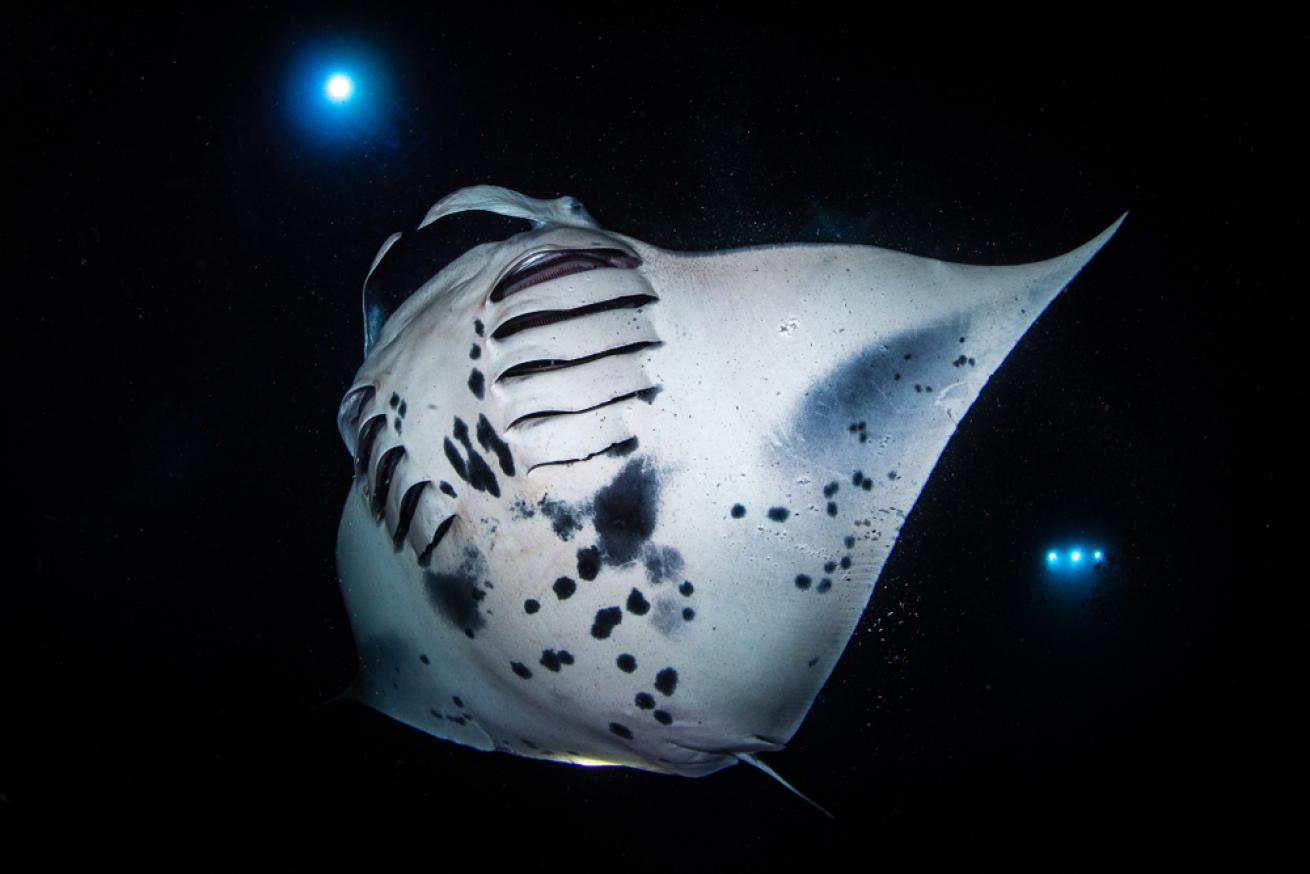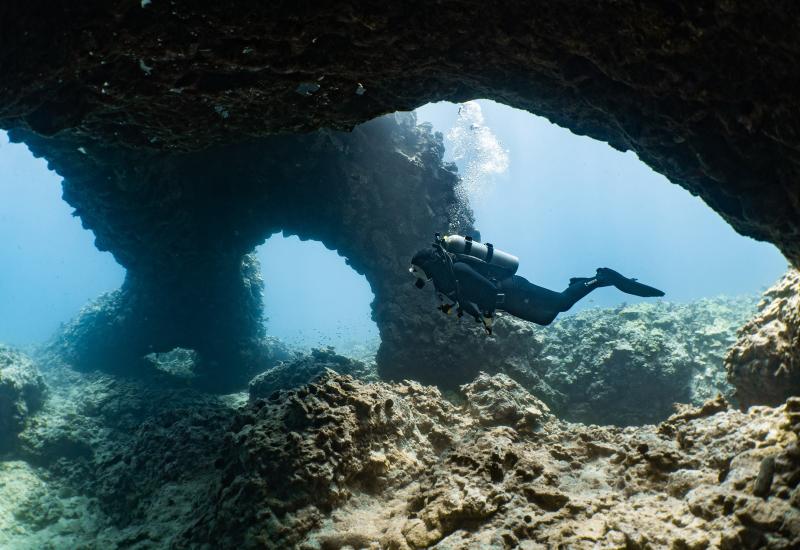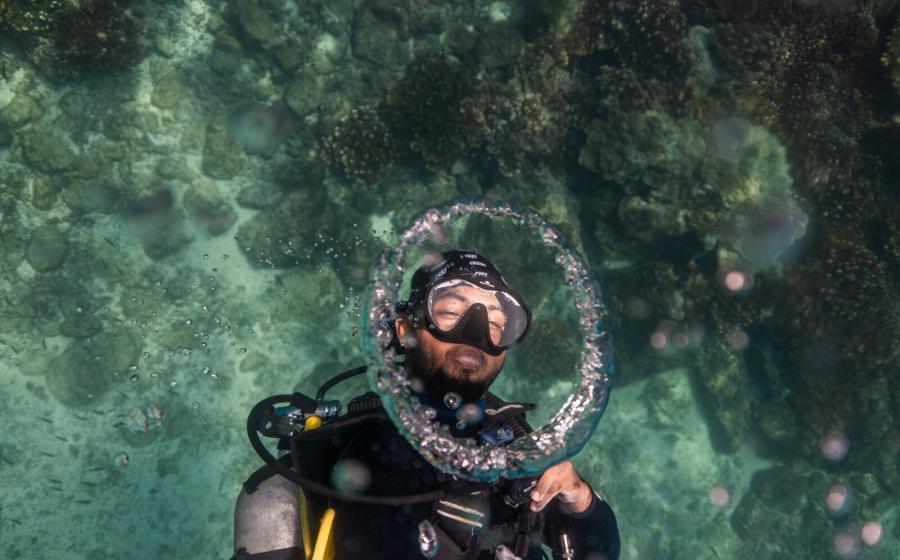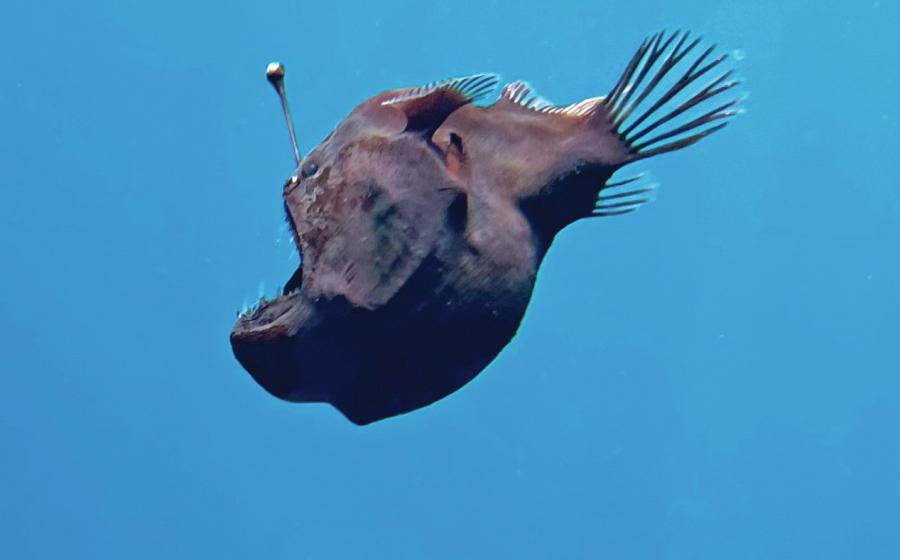Do Dive Lights Harm Manta Rays?

Shutterstock.com/Shane Myers PhotographyDiving with manta rays at night has become one of Hawaii's most popular dives.
Question: Can the “campfire” manta ray night dives and the lights they use cause harm to mantas? —Candice Landau, creative director of Scuba Diving.
Answer: Shining a light to attract plankton for manta rays to eat doesn’t directly cause any harm, but having so many boats and people in an area could become a problem.
Campfire-style night dives with manta rays occur when divers kneel on the seafloor while divemasters shine a light upwards. The light attracts plankton, causing filter-feeding manta rays to swoop through the cloud of food to eat. (I’ve done this dive with my family in Kona, Hawaii, and it ranks among my top 5 all-time favorite wildlife encounters.)
Related Reading: Isla de la Plata: Ecuador’s Best-Kept Secret
But given concerns about the impact that baited shark dives can have on shark behavior (and diving in general on the health of marine ecosystems), it’s worth considering whether artificially bringing so many large animals to the same spot impacts them.
“Feeding” the mantas by attracting plankton probably doesn’t disrupt their behavior much, but being around so many people and boats can cause serious harm.
“Concentrated food could be a benefit to manta rays,” says Dr. Mark Deakos, the president and chief scientist of the Hawaii Association for Marine Education and Research. “But we also need to consider the injuries suffered from manta rays colliding with boats and divers, and having extremely bright lights in their eyes for hours when they would normally just have moonlight. And don’t forget the pollutants from so many boats leaking into the water.”
“While the addition of lights alters manta’s behavior, I don’t view it as a particularly significant change,” Dr. Simon Pierce, president and principal scientist of the Marine Megafauna Foundation, told me. “If good education is integrated into the diving experience, and it contributes to the local protection of mantas, it can even help. But that said, it’s important to avoid entanglement and collision risks for the manta rays.”
Related Reading: What Can You Do With a Degree in Marine Biology?
As with many activities, manta night dives can be done in a way that helps wildlife, in a way that has very little impact one way or the other, or in a way that causes harm. This means it matters what operator you use, what the local regulations are, and how closely you follow them. If an operator shies away from discussing the impact its activities have on the local ecosystem, that might be a red flag—in the least, it likely warrants some extra digging before you book.
Another red flag? When an operator complains that regulations negatively impact their business. A good operator strives to protect the wildlife that is so integral to their success; some will even teach you to minimize your own impact on wildlife.
Both Dr. Deakos and Dr. Pierce support rules limiting the number of boats (and divers) at particular sites, which would help control the total impact of these activities, but as of today, attempts to institute such rules have failed.
Ask a Marine Biologist is a monthly column where Dr. David Shiffman answers your questions about the underwater world. Topics are chosen from reader-submitted queries as well as data from common internet searches. If you have a question you’d like answered in a future Ask a Marine Biologist column, or if you have a question about the answer given in this column, email Shiffman at [email protected] with subject line “Ask a marine biologist.”

Courtesy David ShiffmanImage of David Shiffman
Dr. David Shiffman is a marine conservation biologist specializing in the ecology and conservation of sharks. An award-winning public science educator, David has spoken to thousands of people around the world about marine biology and conservation and has bylines with the Washington Post, Scientific American, New Scientist, Gizmodo and more. Follow him on @WhySharksMatter on Twitter, Facebook and Instagram, where he’s always happy to answer any questions about sharks.
The views expressed in this article are those of David Shiffman, and not necessarily the views Scuba Diving magazine.










